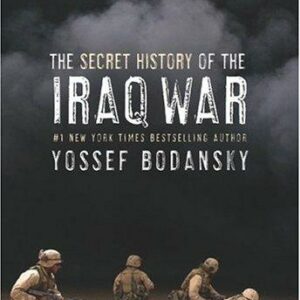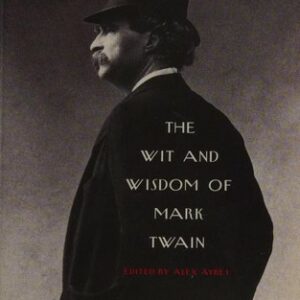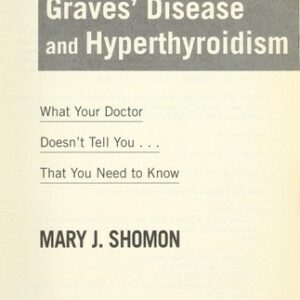A Few Good Women
$24.00
| Title | Range | Discount |
|---|---|---|
| Trade Discount | 5 + | 25% |
- Description
- Additional information
Description
In this riveting narrative history, women veterans from the world wars, Vietnam, the Gulf War, Afghanistan, and Iraq tell their extraordinary stories.
Evelyn M. Monahan and Rosemary Neidel-Greenlee spent fifteen years combing through archives, journals, histories, and news reports, and gathering thousands of eyewitness accounts, letters, and interviews for this unprecedented chronicle of America’s “few good women.” Women today make up more than fifteen percent of the U.S. armed forces and serve alongside men in almost every capacity. Here are the stories of the battles these women fought to march beside their brothers, their tales of courage and fortitude, of indignities endured, of injustices overcome, of the blood they’ve shed and the comrades they’ve lost, and the challenges they still face in the twenty-first century.
“A timely, informative, always thoughtful take on women’s changing role in war. . . . Moving. . . . Vividly described.” —Richmond Times-Dispatch
“A treasure trove of untold history.” —Kirkus Reviews
“A compelling history, made stronger by the profiles of many strong, patriotic women.” —Library JournalEvelyn M. Monahan, a retired psychologist, served in the Women’s Army Corps from 1961 until 1967. She subsequently earned her M.Ed. and Ph.D. at Georgia State University and her M.Div. in theology and ethics at Emory University. She worked at the Department of Veterans Affairs from 1980 to 1996.
Rosemary Neidel-Greenlee served in the U.S. Navy Nurse Corps on active duty from 1962 until 1965 and on reserve duty between 1989 and 1991. She has a master’s degree in nursing from Emory University and worked at the U.S. Veterans Affairs Medical Center in Atlanta from 1981 to 2002.PROLOGUE
Those who live in memory are really never dead.
—Kate Morton, The Shifting Fog
Falluja, Iraq: 23 June 2005, 1920 hours (7:20 p.m.). Cpl. Sally J. Saalman finished roll call of the women marines in her charge, climbed onboard the old truck, and seated herself on one of the parallel benches that ran along both sides of the cargo area. Her eyes took in the deserted streets as the three- vehicle convoy began the fifteen-minute trip back to Camp Falluja and the Women’s Marine Corps barracks. Corporal Saalman and the other nineteen female Leathernecks in the Women’s Search Force had been making this trip twice a day since the inception of the special unit in February 2005. The routine of the Women’s Search Force was as predictable as sunrise and sunset. Day in and day out, the members of this platoon awakened at 0500 hours, ate breakfast, loaded onto a cargo truck, and were transported along the identical route to the staging area in “downtown” Falluja.
From this central point, the Women’s Search Force was dispersed to various checkpoints throughout the city and began their daily mission of stopping and searching Iraqi women for contraband items or messages they might be carrying to, or on behalf of, an insurgent group.
Now, in the 120- degree evening heat, the women marines were glad to be finished with work for the day and headed home. The improvised armored paneling on both sides of the old cargo truck extended only as high as the women’s shoulders and left them with an unobstructed view of either side of the road and backward and forward on the road itself. Looking in the direction from which they had come, it was clear that the second Humvee, whose mission was to protect the convoy from the rear, was nowhere in sight. In compliance with standing orders, the rear guard was keeping a prescribed distance as part of the security plan to protect escorted vehicles. The truck slowed slightly, and the women looked toward the lead Humvee to see if they could determine what was causing the slowdown. The marines in the lead were signaling to the only car in sight to pull to the side of the road and stop. The car’s driver obeyed immediately, and the convoy continued on its way. As the Humvee moved forward and cleared the car, the driver pushed down on the accelerator and aimed the car at the cargo truck carrying the women marines.
In a matter of seconds, the car struck its target just behind the cab on the passenger side. The sound of the explosion rolled outward as thick fingers of orange and yellow flames reached upward, then closed around the truck like an angry fist determined to destroy its enemy. The heat was so intense that two male marines in the cab and two women in the cargo area were killed instantly. For those still alive, the horror was just beginning. Despite their own wounds, women marines crawled back to the truck to drag their more severely wounded sisters from the still burning truck. Women’s voices were calling for water, while another badly burned female asked over and over again how she looked. The extreme heat that had fused one woman’s goggles to her cheeks also exploded the ammunition the women carried. In less than a minute, enemy snipers began firing at the wounded and dead marines scattered in the road.1US
Additional information
| Weight | 14.1008 oz |
|---|---|
| Dimensions | 1.1700 × 5.2700 × 7.9400 in |
| Imprint | |
| Format | |
| ISBN-13 | |
| ISBN-10 | |
| Author | |
| Audience | |
| BISAC | |
| Subjects | gifts for history buffs, feminist gifts, us history, military history, feminist books, biographies of famous people, dad gifts, sociology books, military history books, autobiographies, historical books, biographies and memoirs, inspirational books for women, historical biographies, self love books for women, history of afghanistan, the american war in afghanistan, history, books for women, biographies, army, women in history, battles, Sociology, military, biography, american history, SOC010000, BIO022000, war, gifts for dad, feminism, feminist |











